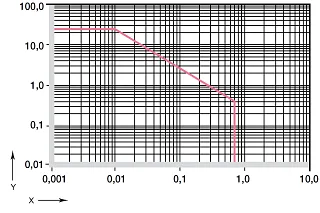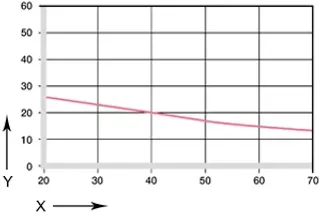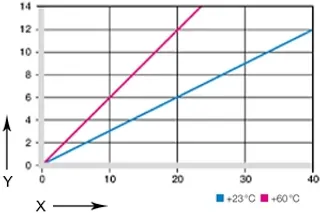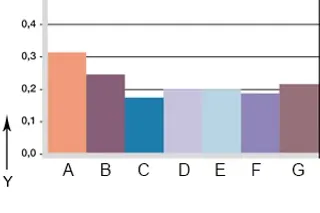Change Language :
iglidur® AB - Material data
Material table
General specification
Unit
iglidur® AB
Test method
density
g/cm³
1,11
DIN EN ISO 1183-1
Colour
yellow
max. Moisture absorption at 23°C/50% room humidity.
% by weight
0,8
ISO 175
max. total moisture absorption
wt.-%
1,6
ISO 62
Sliding friction coefficient, dynamic, against steel
µ
0,18 - 0,31
pv value, max. (dry)
MPa x m/s
0,25
Mechanical specification
flexural modulus
MPa
1.850
DIN EN ISO 178
flexural strength at 20°C
MPa
50
DIN EN ISO 178
Compressive strength
MPa
40
maximum recommended surface pressure (20°C)
MPa
25
Shore D hardness
70
DIN 53505
Physical and thermal specification
Upper long-term application temperature
°C
+70
Upper short-term application temperature
°C
+140
Lower application temperature
°C
-40
thermal conductivity
[W/m x K]
0,24
ASTM C 177
coefficient of thermal expansion (at +23°C)
[K-1 x 10-5]
10
DIN 53752
Electrical specification
Volume resistivity
Ωcm
> 1012
DIN IEC 93
surface resistance
Ω
> 1012
DIN 53482
Table 01: Material data

diagram. 01: Permissible pv value for iglidur® AB plain bearings with 1 mm wall thickness in dry operation against a steel shaft, at +20 °C, installed in a steel housing
X = surface speed [m/s]
Y = load [MPa]
iglidur® AB was specially developed for applications in areas with high hygiene requirements. Such applications often involve manually operated swivels (doors, medical furniture, etc.). The material reduces the germ load in the bearing gap, but - like all "antibacterial" materials - is no substitute for appropriate hygiene measures.

Diagram 02: Recommended maximum surface pressure of a function of temperature (60 MPa at +20 °C)
X = temperature [°C]
Y = load [MPa]
Mechanical specification
The compressive strength of iglidur® AB plain bearings decreases with increasing temperatures. The maximum recommended surface pressure is a mechanical material parameter. No conclusions can be drawn about the tribology.

Diagram 03: Deformation under pressure and temperature
X = load [MPa]
Y = Deformation [%]
diagram. 03 shows the elastic deformation of iglidur® AB under radial load. Possible plastic deformation depends, among other things, on the duration of the load.

diagram. 06: Wear with different shaft materials,p = 1 MPa, v = 0.3 m/s
X = Shaft material
Y = wear [μm/km]
A = aluminium, hard anodised
B = free cutting steel
C = Cf53
D = Cf53, hard chrome-plated
E = HR carbon steel
F = 304 SS
G = high grade steel
Shaft materials
Friction and wear are also highly dependent on the mating partner. Shafts that are too smooth increase both the coefficient of friction and the wear of the bearing.diagram. 06 shows an extension of the results of tests with different shaft materials. When rotating with a load of 1 MPa, the wear on all the shafts tested is very similar. Only the hard-anodised aluminium shafts lead to noticeably increased wear. The wear rate in swivelling and rotation with increasing load is also very close to each other with otherwise identical parameters, as shown in diagram 07.
Contact us
Contact details

Opening hours
Office hours
Monday to Friday from 8 am - 8 pm.
Live chat:
24h



